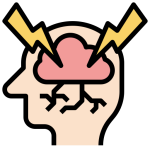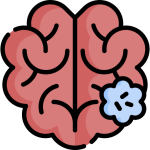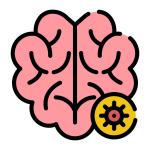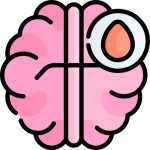Aphasia Triggered by Brain Infection
Although less common than strokes and brain injuries, aphasia can also be caused by an infection in the brain. Any infection that damages or impacts the brain’s language centers can cause aphasia and language impairments. There are a wide variety of viruses and underlying causes of brain infection. A brain infection typically causes one of the following:
- Encephalitis: inflammation of brain tissue
- Meningitis: an inflammation of the brain’s linings
- Brain abscess: a pocket of infection in the brain (often due to bacteria)
Brain infection is more common in young children and older adults. People with compromised immune systems are also more likely to get brain infections. This includes people with HIV/AIDS and people who take immune suppressing medication. There is also a higher risk for brain infection in certain geographic regions that have an increased rate of tick- and mosquito-borne viruses.
Brain infections can cause aphasia if the infection or swelling impacts the brain’s language centers. Aphasia due to brain infection is often short-term and gets better when the infection is cleared. However, if the infection is severe, long-term aphasia can result.
Aphasia as a result of brain infection can be treated by a speech-language pathologist (SLP). If the infection is still active, the medical team will focus on medical intervention. Aphasia is likely to resolve if the brain infection is addressed quickly and treated. However, if aphasia persists, an SLP can help provide therapy and strategies to improve communication.
People with severe brain infections might also have other impairments. These can include:
- Vision impairment
- Hearing impairment
- Muscle weakness or paralysis
- Changes in personality
Click on the tiles below to learn more about the most common causes of aphasia.
Stroke

Brain Injury

Brain Tumor

Brain Surgery

Brain Infection

Dementia

Developmental Disabilities

